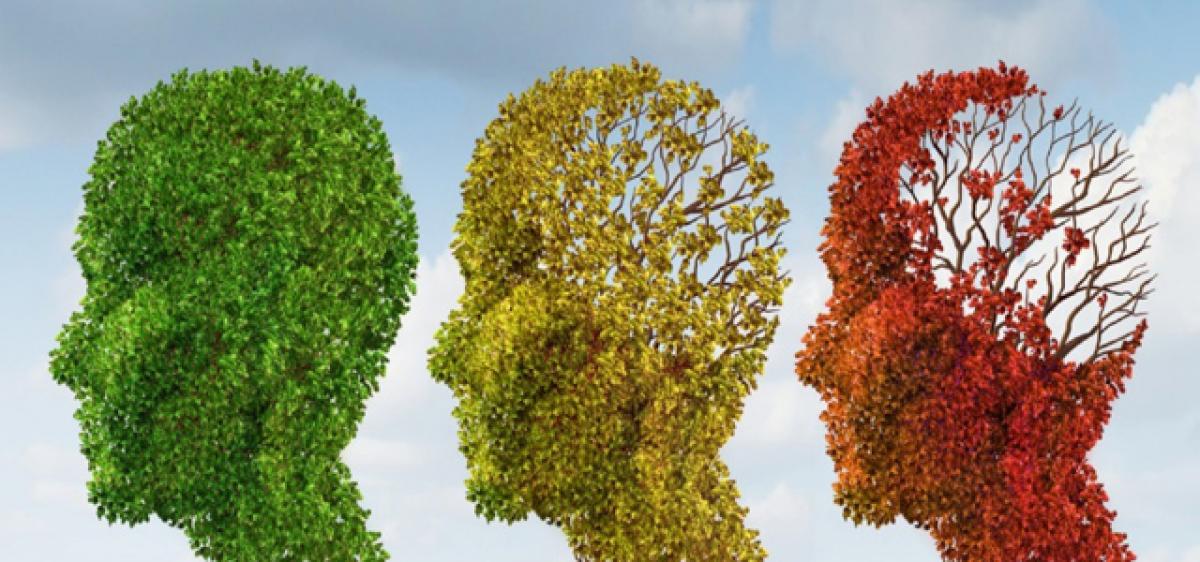Live
- Job mela at Masab Tank tomorrow
- New toilets facilitated for MPP school students
- Steps to safeguard natural springs gain momentum
- RWAs want officials to clear fog over SCB-GHMC merger
- Tanks, canals remain neglected despite execution of MGNREGS works
- BRS to celebrate Deeksha Diwas on Nov 29, Dec 9
- NCC Day grandly celebrated at SITAM
- CITU demands rollback of strategic sale of VSP
- 7-Year-old girl sexually assaulted in Tirupati
- PM Modi highlights govt's efforts to make Odisha prosperous and one of the fastest-growing states
Just In

Old age may slow down memory and other physical and cognitive skills, but the brain has the remarkable potential to reduce these effects, a study has found.
London: Old age may slow down memory and other physical and cognitive skills, but the brain has the remarkable potential to reduce these effects, a study has found.
In order to process the information that we receive every day, our brain builds categories into which we sort everything that makes up the world around us.
The study found that this process of categorisation changes as we age. The brains of elderly struggle to categorise and rapidly switch focus from one to another.
"Older people find it harder to switch from one strategy to the other," said Sabrina Schenk, neuroscientist at Ruhr-Universitat Bochum (RUB) in Germany.
But, their brains compensate by paying more attention to detail than younger adults, the study said.
While the young adults spread their attention wide and gather information from different sources, the elderly focus their attention, looking more at detail, the researchers explained.
"To a certain extent, the brain is able to slow down negative effects of ageing by increasing its level of attentiveness," Schenk added.
In the study, the participants were asked to sort circles with varying colour combinations into one of two categories.
Some of the circles were very similar to each other; others were distinctly different. To which category the circles belonged was indicated by a feedback during the test.
The researchers not only documented the participants' answers, they also recorded their brain waves via an electroencephalogram (EEG) and used an eye tracker to trace their line of vision.
The results showed that both young and older participants had no difficulties categorising the similar looking circles -- the learning mechanism of both groups were comparable.
It was only in the later stages of the experiment, when distinct looking circles where shown, that differences between the groups became apparent.
Older participants found it more difficult to categorise these exceptions than their younger counterparts.
The measurements of brain waves also showed that the elderly develop a particular selective attentiveness.
In other words, they pay more attention to details and look more closely than younger people. This was also confirmed by the eye tracker, the researchers concluded in the paper published in the journal Neuropsychologia.

© 2024 Hyderabad Media House Limited/The Hans India. All rights reserved. Powered by hocalwire.com







